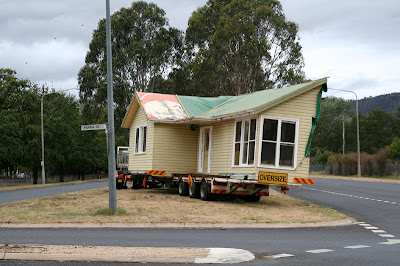 Matt Yglesias points out that when countries (like Denmark) make sure that only people who can afford mortgages get mortgages...fewer people own houses. Also, the economy doesn't collapse from housing bubbles. Yglesias then casts aspersions on the hallowed American dream of homeownership:
Matt Yglesias points out that when countries (like Denmark) make sure that only people who can afford mortgages get mortgages...fewer people own houses. Also, the economy doesn't collapse from housing bubbles. Yglesias then casts aspersions on the hallowed American dream of homeownership: [E]ven though it’s become a dogma in American politics that more people owning homes is a sign of economic progress, I don’t see any real reason to believe that to actually be true. Especially in a large country like the United States, it would arguably be beneficial to encourage people to be as flexible as possible in terms of where they live—i.e., to rent and to be prepared to follow labor market opportunities where they may take you.This may be true and it may not. As I see it, there's not much reason to encourage or discourage homeownership; it's a personal choice that doesn't really affect anyone but the person or family that makes it.
But I think it's also important to realize that what we've been encouraging in America is not really homeownership. If you have one year left on your 30-year mortgage and you fail to make payments, you can still be kicked out of your home (in most states). That means buying a home is just making a really really long-term one-way bet on a single asset. Owning a home may increase your economic security, but buying a home probably decreases it. I think a lot of policymakers who encourage home-buying are imagining that if more families eventually own homes, those families can have an asset to draw upon in times of need, or offer relatives a place to crash, or have startup capital for a small business. Those are all true, but to get there takes 30 years. Many people never make it.









0 comments:
Post a Comment